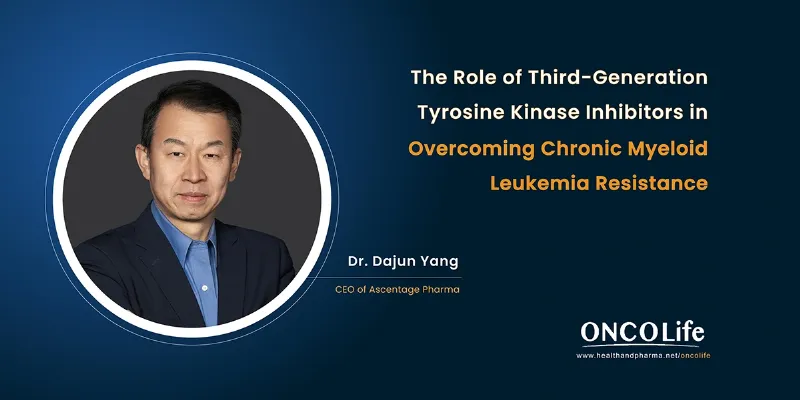The Role of Third-Generation TKIs in Overcoming Chronic Myeloid Leukemia Resistance

The third-generation tyrosine kinase inhibitor olverembatinib may represent a major advance for patients with chronic myeloid leukemia and Philadelphia chromosome (Ph+) positive acute lymphoblastic leukemia, especially those with resistance mutations such as T315I. In this interview, we speak with Dr. Dajun Yang, CEO of Ascentage Pharma, about the latest clinical findings of olverembatinib in frontline and relapsed Ph+ acute lymphoblastic leukemia(ALL). You can follow this interview on LinkedIn by this link:>>>
We will discuss its unique mechanism of action, the potential of chemotherapy-free regimens, and how this novel TKI is shaping global treatment strategies. Join us to learn more about the science, the data, and what lies ahead for this innovative therapy.
Some of the key topics in this interview include:
- Could you explain how third-generation tyrosine kinase inhibitors work and the science behind them? What makes olverembatinib particularly effective in targeting resistant mutations in chronic myeloid leukemia?
- Olverembatinib has already received clinical approval in China for CML with T315I mutations. Several studies highlighted its use in combination therapies for Ph+ acute lymphoblastic leukemia. What do these early findings reveal about its efficacy and safety in frontline, chemotherapy-free regimens?
- One of the most striking findings was from the combination study of olverembatinib with blinatumomab, where 100% of patients achieved complete remission after one cycle. Could you explain the clinical significance of these results, especially in terms of long-term survival and tolerability?
- Another promising study combined olverembatinib with vindesine and prednisone in newly diagnosed Philadelphia chromosome-positive ALL. With high response rates seen in just three cycles, how could this approach change first-line treatment for adult patients?"
- In relapsed or MRD+, Ph+ ALL, the combination of olverembatinib enabled 64% of patients to proceed to allogeneic stem cell transplantation. Could this represent a game-changing bridge therapy for transplant-eligible patients?
- Ascentage Pharma has built a strong global network with leading institutions such as Dana-Farber and Mayo Clinic. How are these collaborations empowering your clinical development efforts, particularly in your global registrational trials?











Comments
No Comments Yet!